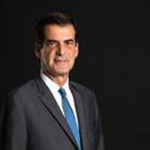Porto, Portugal - Intercultural City

Declared a Cultural Heritage of Humanity by UNESCO, Porto history dates back to the 1st century BC, when, under Roman rule, it was known as Cale or Portus Cale. Emerged from the waters of the Douro River, Porto had a crucial role in the development of Portuguese shipbuilding, and it was from Porto that in 1415, Infante D. Henrique, the Navigator, left to explore the West African coast, starting the Age of Portuguese Discoveries.
There are many symbols, nationally and internationally recognised, that make the city's history. This is the case of Port Wine and its well-known “Rabelo” boats; the D. Maria Pia Bridge, designed by Gustave Eiffel; and the D. Luís Bridge, icon of Porto city, designed by Teophile Seyrig.
The city of Porto is located along the Douro River estuary in the northern region of Portugal. It covers an area of 41.4 km² and its population accounts for 231,828 citizens (2021 – preliminary data from INE).
The municipality of Porto, in line with the European and national guidelines of public policies for ethnic minorities and migrants, adopted a strategy to promote interculturality as a way to expand the socioeconomic and cultural benefits resulting from the heterogeneity and mitigate potential conflicts that may arise from this, creating new ways of positive interaction, intercultural dialogue and integration of different communities.
The work carried out by the Social Cohesion Department aims to promote the social development of the city and the population’s social well-being.The Department coordinates city institutions that provide social support, monitor situations of vulnerability andexclusion and address social emergencies. The result of this work is the Municipal and Intercultural Mediators Team project, which aims to empower those who, due to socio-economic and cultural circumstances, are in a situation of vulnerability/exclusion. The team uses intercultural mediation as a methodology to approach local populations and institutions, thus deepening the intercultural dialogue of these communities with the city, creating more inclusive territories.
Porto City, nestled along the picturesque Douro River in Portugal, boasts a rich tapestry of population diversity that reflects its long history as a vibrant cultural crossroads. From its ancient roots as a Roman settlement to its prominence during the Age of Exploration, Porto has continuously drawn people from diverse backgrounds, shaping its unique social fabric.
One of the key aspects of Porto's population diversity is its multiculturalism. Over the centuries, the city has welcomed immigrants from various parts of the world, contributing to its cosmopolitan character.
Waves of migration from former Portuguese colonies such as Brazil, Angola, Cape Verde, and Mozambique have infused Porto with a rich blend of languages, traditions, and cuisines. This cultural exchange has not only enriched the city's cultural landscape but also fostered a spirit of tolerance and openness among its residents.
Furthermore, Porto is home to a significant expatriate community, attracted by its favorable quality of life, stunning architecture, and thriving arts scene. migrants from across Europe, the Americas, Asia, and beyond, have made Porto their home, adding further layers of diversity to the city's population.
From the migrant populations analysis carried out by the city, based on the official data, which illustrated the size, profile and evolution of these populations in the territory, it appears that Porto is the 4th city in the country with the most foreign population (1st Lisbon, 2nd Faro, 3rd Setúbal, 4th Porto, 5th Braga, 6th Aveiro). Official data from 2020 shows that Porto welcomes many foreign residents of a total of 55,473 people.
In conclusion, Porto City's population diversity is a source of strength and vitality, enriching its social fabric and contributing to its unique identity. As the city continues to evolve and grow, embracing its multicultural heritage and fostering inclusivity will be essential to ensuring a vibrant and thriving future for all its residents.
- What is the ICC Index?
- Porto Results






